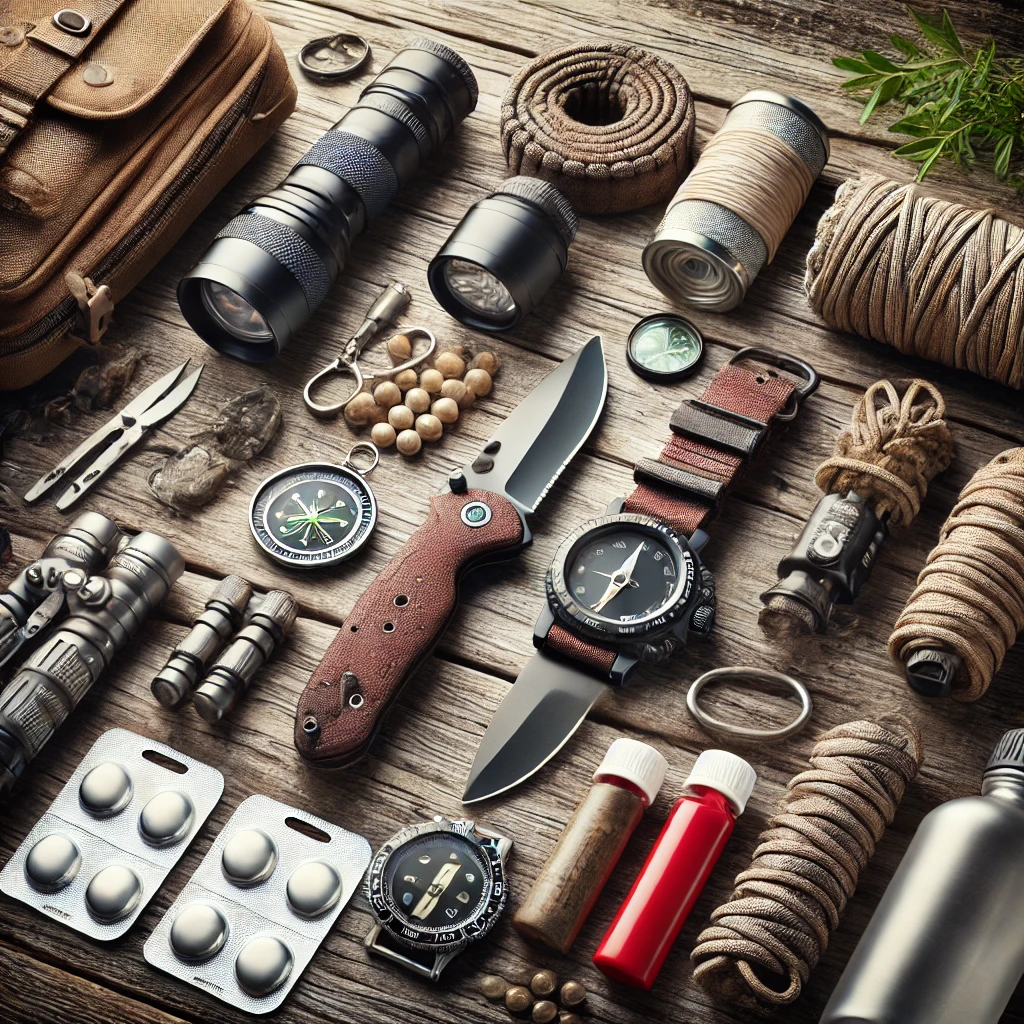Address
304 North Cardinal
St. Dorchester Center, MA 02124
Work Hours
Monday to Friday: 7AM - 7PM
Weekend: 10AM - 5PM
Address
304 North Cardinal
St. Dorchester Center, MA 02124
Work Hours
Monday to Friday: 7AM - 7PM
Weekend: 10AM - 5PM

When venturing into the wild, it’s important to be prepared for any situation. Having the right survival gear can make a big difference in your safety and ability to handle emergencies. Here’s a list of essential survival gear that should be included in your pack.
A multi-tool is one of the most versatile pieces of survival gear you can have. It combines multiple functions like cutting, screwing, opening bottles, and even tweezing, all in one compact tool.
Fire is essential for warmth, cooking, and signaling for rescue. A reliable fire starter like a waterproof lighter, matches, or a ferro rod should always be in your kit. Practice starting fires with various methods before you need them.
A first aid kit is crucial for treating cuts, bruises, sprains, or more serious injuries in the field. Your kit should include bandages, antiseptic wipes, gauze, tape, tweezers, and pain relief medication.
Having access to clean drinking water is vital for survival. Carry a portable water filtration system, such as a life straw or a filter pump, to purify water from streams, rivers, or lakes.
A small, lightweight shelter can protect you from the elements. Carry a tarp, space blanket, or emergency bivvy bag to stay warm and dry when conditions turn harsh.
A quality survival knife is essential for tasks such as building shelters, preparing food, and creating tools. Choose a strong, fixed-blade knife with a full tang for durability.
Being able to signal for help is critical. Carry a whistle, signal mirror, or even a flare to alert rescuers to your location. A brightly colored piece of cloth or a flashlight can also help in emergencies.
In emergencies, it’s important to have food that provides quick energy. High-calorie energy bars, freeze-dried meals, and trail mix are excellent options to keep you going when food is scarce.
Rope or paracord is useful for building shelters, securing gear, or even performing rescue operations. A small coil of paracord should be part of every survival kit due to its many uses.
A compass or a GPS device will help you navigate and avoid getting lost. A reliable compass is lightweight and simple, while a GPS can be more useful in dense terrain if you have access to batteries or solar power.
While these are the essentials, always tailor your survival gear to the environment you are in. Ensure you know how to use each item in your kit and regularly check for wear and tear on your gear.